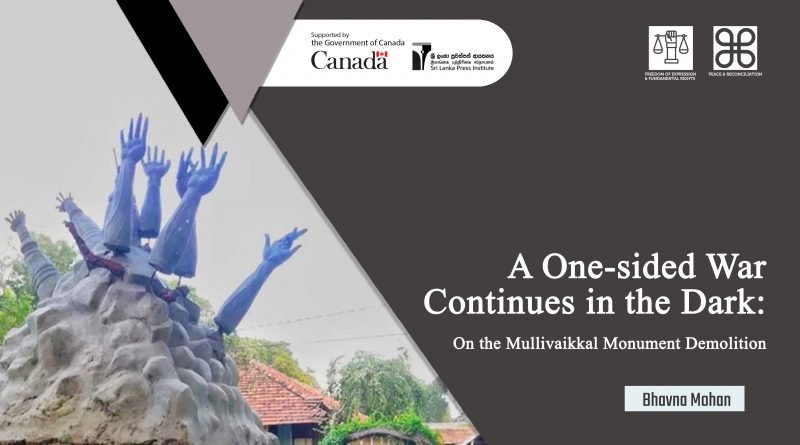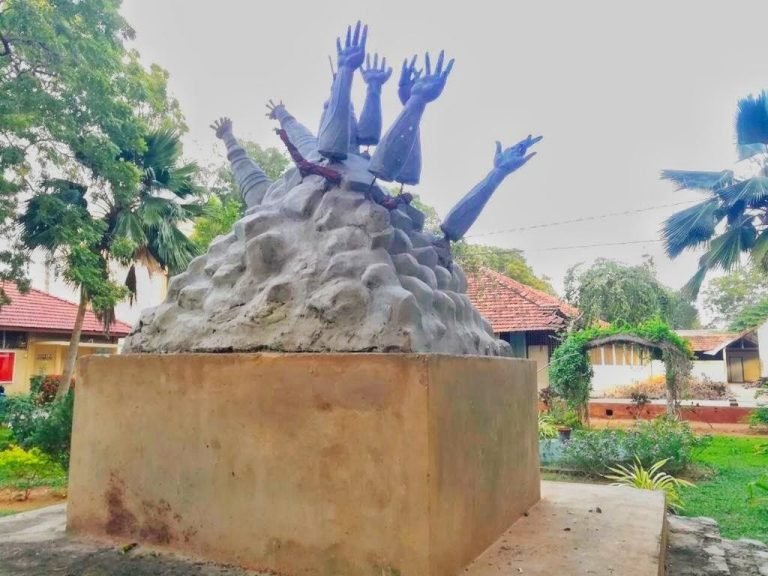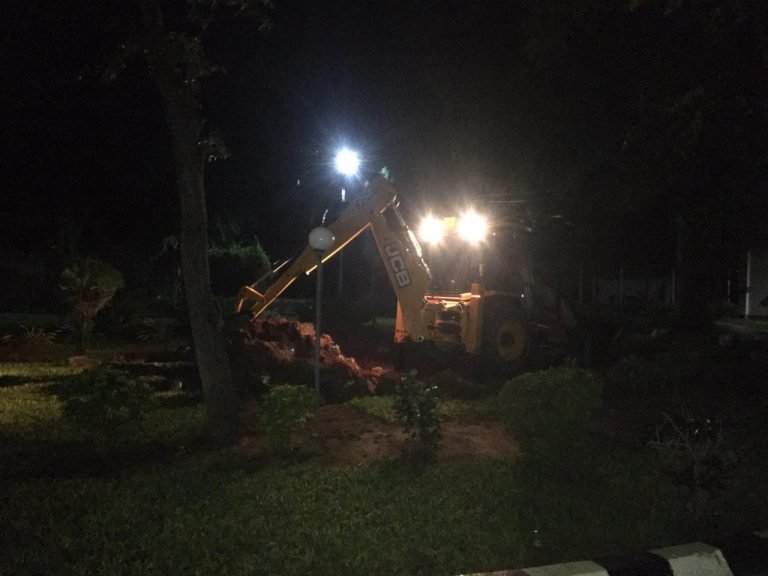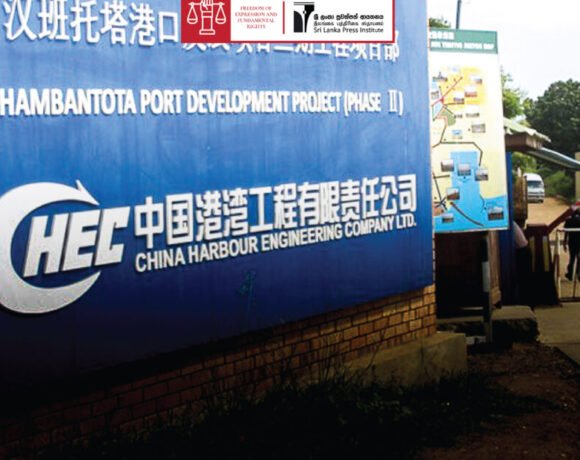
A One-sided War Continues in the Dark: On the Mullivaikkal Monument Demolition
Bhavna Mohan

Almost 12 years after the 26-year long civil war that plagued our island was officially declared over, Sri Lanka is not completely free of its divisiveness.
The demolition of the Mullivaikkal monument at the University of Jaffna on the night of 8th January 2021, intended to be done on the sly, and the treatment of student protestors following their outcry against the demolition, is a testament to that.

In the days that followed, however, events took an interesting turn, and swift action was displayed from local authorities in diffusing the tensions – something not displayed in the past when similar situations occurred.
Jaffna University Vice Chancellor S. Srisatkunarajah, who had previously stated that he had been following orders by the “defence, intelligence, Education Ministry, everyone” in demolishing the monument, sang a different tune the next day, according to Prime Minister Mahinda Rajapaksa’s Media Secretary Rohan Welivita, following the PM’s meeting with Indian High Commissioner to Sri Lanka Gopal Baglay.
Furthermore, India’s vociferous condemnation of the demolition, along with members of the Tamil diaspora overseas, had also played a part.
However, the intention behind these swift actions is questionable. It was revealed by Jaffna University’s former Head of Law K. Guruparan that the former Vice Chancellor of the university was sacked due to his refusal to demolish the very same monument.

The right to remember stifled
Built in remembrance of the lives lost at the Mullivaikkal massacre during the last leg of the war, the Mullivaikkal Memorial depicts arms outstretched towards the sky, akin to the scenes that transpired when those who surrendered to the Sri Lanka Army were killed.
Needless to say, a country’s citizens should be afforded the right to remember their loved ones, as it is a process of healing and also contributes towards reconciliation.
Sri Lanka saw an easing of restrictions and the freedom being afforded to the Tamil people to remember their loved ones, during the time the previous Yahapalana Government was in power. However, this freedom is being stifled once again, ata time that is now reminiscent of the post-war Rajapaksa regime.
Events not new
Nevertheless, this recent incident should come as no surprise, as, since the end of the civil conflict, the Government of Sri Lanka has consistently evaded questions and refuted allegations of war crimes, despite available evidence. The number of casualties is said to be 100,000 people, which is in contrast to the statistics released by the Sri Lankan Government in 2012, where it claimed the death toll stood at 9,000.
In fact, President Gotabaya Rajapaksa – the Defence Secretary at the time the war ended – went so far as to declare a year ago in January 2020 that the thousands who were missing – 20,000, mostly Tamils, an estimated figure – are dead. There is no independent confirmation of this.
Going a step further, in November last year, courts banned remembrance events for LTTE cadres on “Heroes Day” (27 November), after government lawyers and the Police argued it could lead to the “revival of the LTTE”.
Additionally, United Nations (UN) Special Rapporteur Pablo de Greiff’s June 2020 report on on the promotion of truth, justice, reparation and guarantees of non-recurrence states “surveillance, intimidation and arrests continue to hamper memorialisation activities; family members of victims do not have access to memorials and monuments, some of which have been deliberately destroyed; and the prohibition on the memorialisation of fallen Tamil Tigers persists”.
In this backdrop, netizens must question whether the current Government, one that has not seen it fit to be answerable to any nation, and has been vocal in condemning interference by other countries, is finally seeing the light.
A one-sided war is being fought in the dark, and we, as netizens, must remain vigilant and make it known that we are not blind, unlike Lady Justice.








